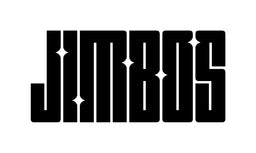3 Levels of Paint Correction Explained
When it comes to paint correction, not all services are created equal. Some are quick gloss boosts, others are full-on restorations. Whether you're a DIYer or a pro detailer, understanding the 3 levels of paint correction helps you choose the right approach based on time, paint condition, and customer expectations.
Level 1: Single-Stage Correction (Gloss Enhancement)
What it is: A one-step polish using a medium or light cut pad to remove light swirls, oxidation, and haze. Ideal for daily drivers or coated vehicles that just need a refresh.
Best for:
- Maintaining gloss between major details
- Vehicles with minor swirling or dullness
- Quick prep before applying protection
Time Required: 2–4 hours
Recommended Product: Picture Perfect Polish
Level 2: Two-Stage Correction (Cut and Polish)
What it is: A two-step process—first using a compound to remove deeper defects, followed by a polish to refine the finish. This is the most common correction level for moderately swirled or scratched paint.
Best for:
- Neglected or heavily swirled paint
- Prepping for ceramic coatings or paint protection film (PPF)
- Clients who want a dramatic before-and-after transformation
Time Required: 6–10 hours depending on vehicle size and condition
Level 3: Multi-Stage or Full Correction
What it is: An advanced, multi-stage correction process using multiple compounds, pads, and techniques to remove as many defects as safely possible. This is often done on show cars, black paint, or high-end vehicles with soft clear coats.
Best for:
- Show-level finishes or concours prep
- Deep etching, RIDS (random isolated deep scratches), or sanding mark removal
- Luxury and exotic vehicles with soft or custom paint
Time Required: 12–20+ hours and often multiple days
How to Choose the Right Level
- Inspect your paint in direct light—Are defects light or deep?
- Consider your goals—Do you want perfection, or just better gloss?
- Time vs value—Sometimes a single-stage polish is all a customer really needs
Pro Tip
If you’re unsure, start with a single-stage polish like Picture Perfect Polish. You can always step up to a full correction if needed—but a light polish often surprises people with how much it improves the finish.
Final Thoughts
Understanding the 3 levels of paint correction can save you time, money, and frustration—whether you're a weekend warrior or full-time detailer. Always start with a test spot, inspect your results, and work smarter, not harder.



